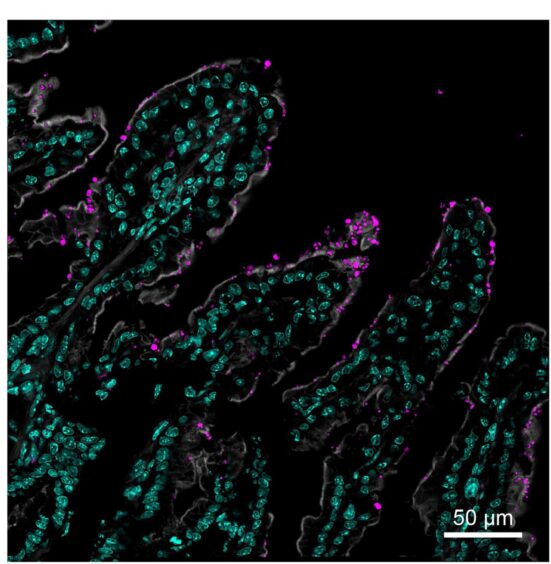University of Dundee scientists and research group Moredun Scientific have together achieved a breakthrough in the treatment of a costly parasitic infection in calves.
Beatriz Baragana, portfolio leader at the university’s drug discovery unit, hailed the results of recent drug trials as “very exciting”.
And they could even pave the way for treating humans affected by the same parasite.
Some of the research took place at its school of life sciences.
Research was also carried out at Larner College of Medicine at Vermont University in the US.
The infection, Cryptosporidiosis, is caused by a tiny parasite called Cryptosporidium.
This can live in water, food, soil, or on surfaces contaminated by infected faeces.
Last year, Perth Leisure Pool was forced to shut for six days because of Cryptosporidium contamination.
The resulting infection is a major concern for farmers. This is because it leads to severe diarrhoea in young livestock and reduced weight-gain, causing hefty financial losses.
Cryptosporidiosis has long been a challenge for the agriculture industry, with few effective treatments available. The ability to manage infections and limit parasite transmission is key to improving calf health and reducing economic losses in the sector.
Dundee research offers huge potential
This new development offers hope for reducing both the severity of the disease and the spread of infection within cattle herds.
Ms Baragana said: “The results from the cryptosporidiosis calf efficacy studies at Moredun Scientific with our two most advanced compounds were very exciting.
“The studies highlighted their potential to be used to clear infections in neonatal calves in farms. We are also interested in exploring their use for human infections caused by the same parasite.”
Cryptosporidiosis an ‘under-researched’ disease
Drug discovery unit medical chemistry team leader Nicola Caldwell said: “Since I work in drug discovery and also have family ties to farming in Scotland, it was really exciting.
“Cryptosporidiosis is an under-researched disease that has a major impact on both human and animal health, as well as an economic burden.
“To have the opportunity to test two of our compounds in Cryptosporidium-infected calves at a research facility on our doorstep was hugely beneficial to our project.”
Ms Caldwell added: “The results from these studies were very encouraging and will help drive the development of new cryptosporidiosis treatments for human and veterinary applications.”
The study involved newborn calves with cryptosporidiosis, split into two groups.
One group received promising new compounds developed by researchers at the universities of Dundee and Vermont. It was administered twice daily for seven days.
New compounds delivered ‘marked improvement’ in treated calves
Treated calves either had normal faeces or only mild diarrhoea, a marked improvement compared to non-treated animals.
While the results of this study are promising, further research is needed to confirm the long-term efficacy and safety of the two compounds, as well as their commercial viability.
Larger field trials will be needed before the compounds can be licensed for use and produced commercially, and then made widely available to farmers and veterinarians.
We hope these treatments can have an impact either in the clinic or on the farm.” Mattie Pawlowic, Dundee University
Dundee University researcher Mattie Pawlowic said “It was very exciting to work with the team at Moredun Scientific to test these potential new treatments for cryptosporidiosis.
“Few places in the world can carry out this important work in large animals.
“We hope these treatments can have an impact either in the clinic or on the farm.”
This post was originally published on here









